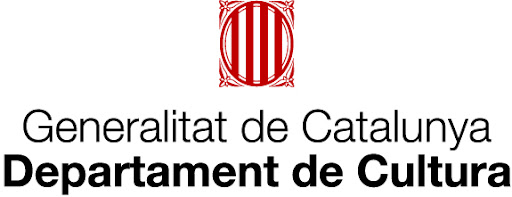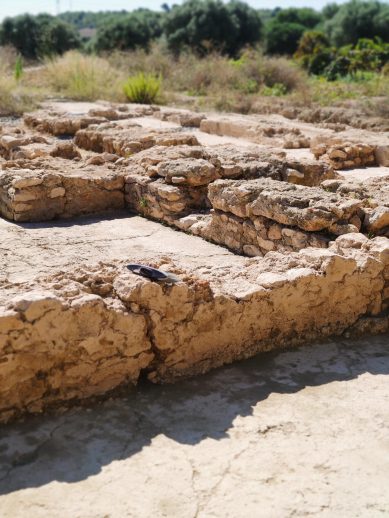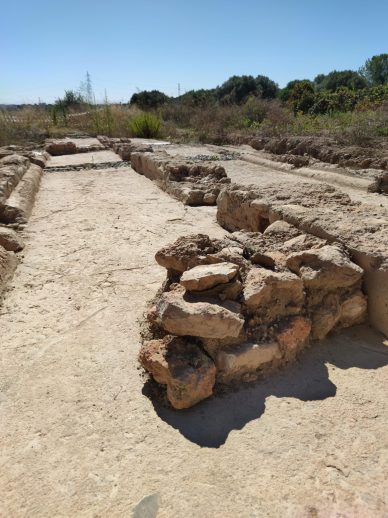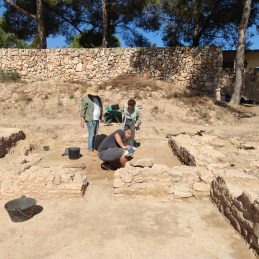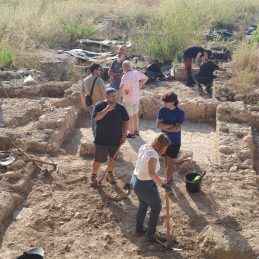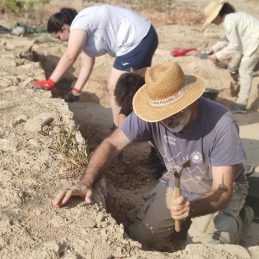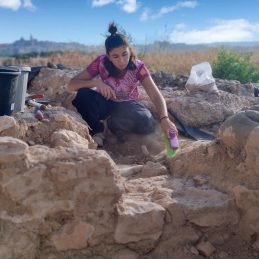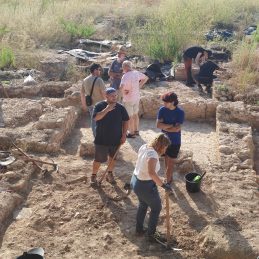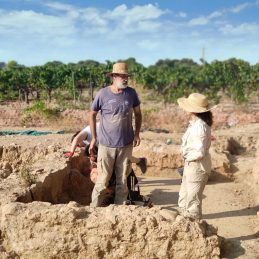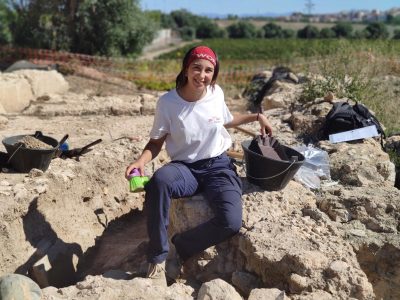
The archaeological site located at the Roman villa of Mas dels Frares, in Constantí (Tarragonès), hosted a group of students from the Universitat Rovira i Virgili (URV) as part of a new archaeological campaign by ICAC-CERCA.
The intervention took place from August 30 to September 13, 2024, within the research project Estudi i difusió de la vil·la romana del Mas dels Frares (Constantí, Tarragonès), II Fase, under the technical direction of Francesc Rodríguez, leading researcher, along with Jordi López and Itziar Gutiérrez, researchers MIRMED research group.
A space for training and research at the service of students
The excavation program at Mas dels Frares not only focuses on research but has also become a well-established space for university internships. The excavation is part of the URV internship program, in collaboration with the Faculty of Enology, and allows students to carry out digging activities, archaeological drawing, architectural consolidation, and material study.
Nine students from the URV‘s Art History and Archaeology degree participated in the 2024 campaign: Adrià Cuartielles, Albert Bel, Dídac Sancho, Eva Gutiérrez, Ferran Navarro, Judith Lardin, Guillem Jové, Judit Ferré, and Xavier Fernández. We would like to thank them all for their interest and dedication, especially Judit, Guillem, and Xavier, who have repeated the experience for the second consecutive year.
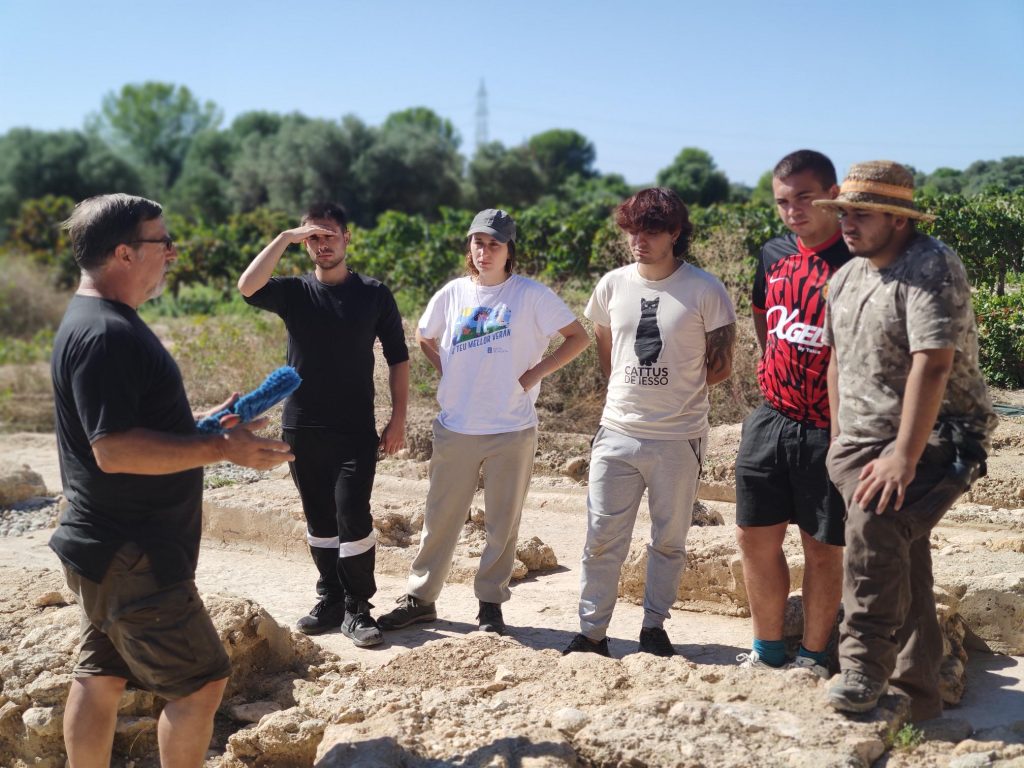
The team also included, as in previous campaigns, the conservator Marta Martín, who continued restoration work on the site’s walls and pavements, which will eventually allow for the musealization of the archaeological remains. The internship students had the opportunity to collaborate with her and thus learn about other professional profiles related to archaeological practice. Marta herself was very positive about the experience of working with interns and also considered it an opportunity for young people to explore different aspects and career paths related to their studies.
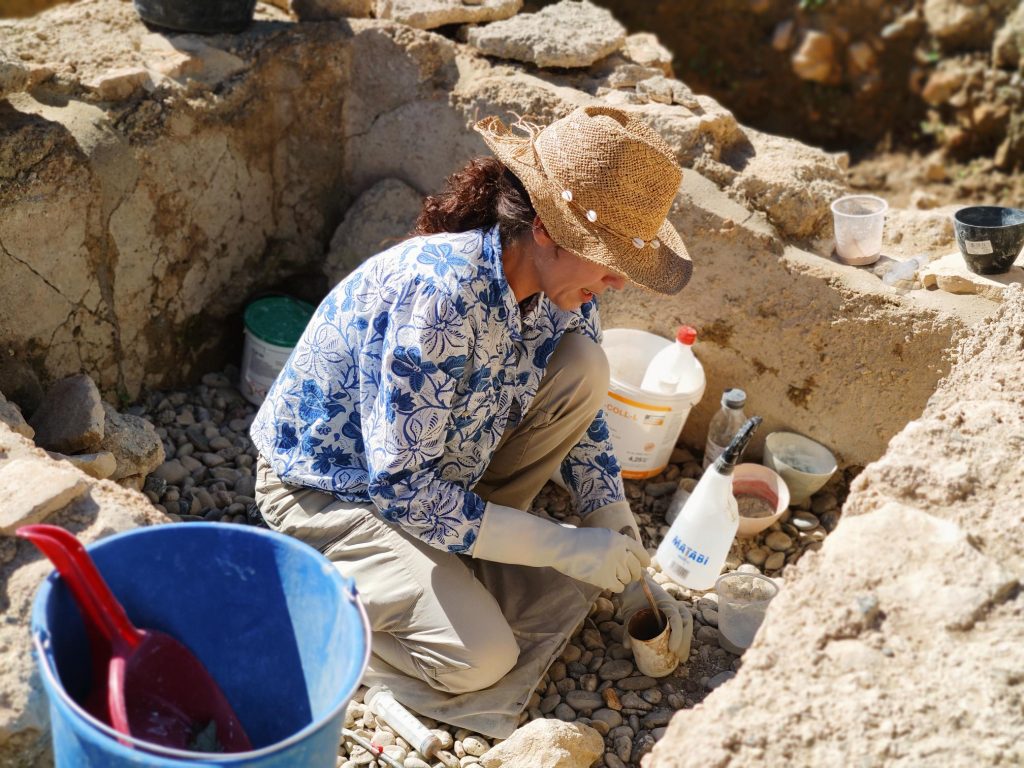
Francesc Rodríguez: a career linked to Mas dels Frares
For me, Mas dels Frares is not just a site, but a project that I am passionate about continuing to explore.
The excavation director himself, Francesc Rodríguez, has developed much of his training at the site. “My connection with Mas dels Frares dates back to 2017, when I was starting my doctoral thesis at ICAC,” Rodríguez explains, recalling how he participated in an emergency excavation following a collapse. Since then, he has been a member of the research team, and now, as the principal investigator, he leads a new phase of the project.
Rodríguez also highlights the value of involving students in the excavations:
The participation of URV students is truly enriching. It allows them to apply theoretical knowledge in a real archaeological excavation context, develop essential skills (such as teamwork, stratigraphic interpretation, or archaeological material analysis), and experience firsthand how historical knowledge is constructed. Moreover, taking part in a project of this nature during their training opens doors to future professional and academic opportunities. For the team, their energy and enthusiasm are fundamental to driving the project forward.”
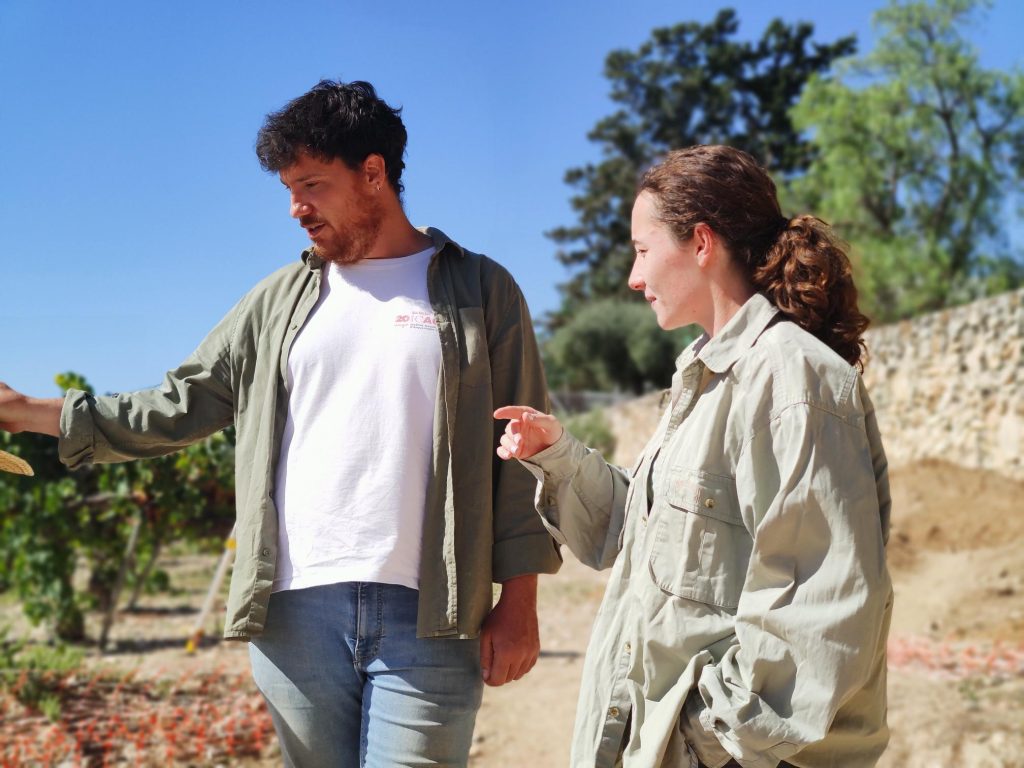
Advances in the excavation of the eighth campaign at Mas dels Frares
Regarding the archaeological efforts of the eighth archaeological campaign at Mas dels Frares in 2024, the team focused on completing the extended excavation of areas 1.6 and 1.8, which had already been worked on during the 2023 campaign. In addition, they worked on a dolium found inside area 1.5 and surveyed the space affected by a modern agricultural trench, which had damaged a hydraulic mortar pavement in area 1.4. This survey provided new information about the phases preceding the construction of the Roman villa.
Guided visit to the site
On Saturday, September 28 (10 a.m.), ICAC-CERCA researcher Francesc Rodríguez, along with the rest of the Late Antiquity team, will guide a visit to the Roman villa of Mas d’en Bosch and the newly excavated areas of the Mas dels Frares site, located in Constantí (Tarragona).
The meeting point will be at 10 a.m. at Parc de la Muralla (Constantí). Registrations are open from September 16 to 27 and can be made at the OAC of the Constantí City Hall (Carrer Sant Pere 49, Monday to Friday from 9 a.m. to 2 p.m.), by email at cultura@constanti.cat, or by phone at 977 524 036. The visit fee is 1 €. We look forward to seeing you there!
A consolidated archaeological project
Mas dels Frares archaeological site provides relevant information about the Romanization process of the Tarraco region.
The Roman villa of Mas dels Frares is located in the municipality of Constantí, 1.5 km from this town and next to the Experimental Winery of the URV’s Faculty of Enology. The archaeological work carried out recently has demonstrated the existence of a rural site between the 2nd century BC and the 7th century AD. The central part of this period comprised an agricultural villa focused on wine cultivation as a priority economic activity.
These findings show how the current territory of Constantí was one of the first to be cultivated by Italic colonists. Another significant discovery has been the documentation of the long-lasting rural occupation during the Visigothic period. The villa’s baths and large pool were repurposed for domestic spaces, reflecting the rural occupation of the Ager Tarraconensis until the arrival of Islam.
The most recent work, in the summer of 2023, documented elements that have provided a better understanding of the site’s chronological evolution. Archaeological work at the Roman villa of Mas dels Frares began in 2019, within the project Estudi i difusió de la vil·la romana del Mas dels Frares (Constantí, Tarragonès), I Fase, directed by Josep Maria Macias and co-financed by the Generalitat de Catalunya (CLT009-18-0102).
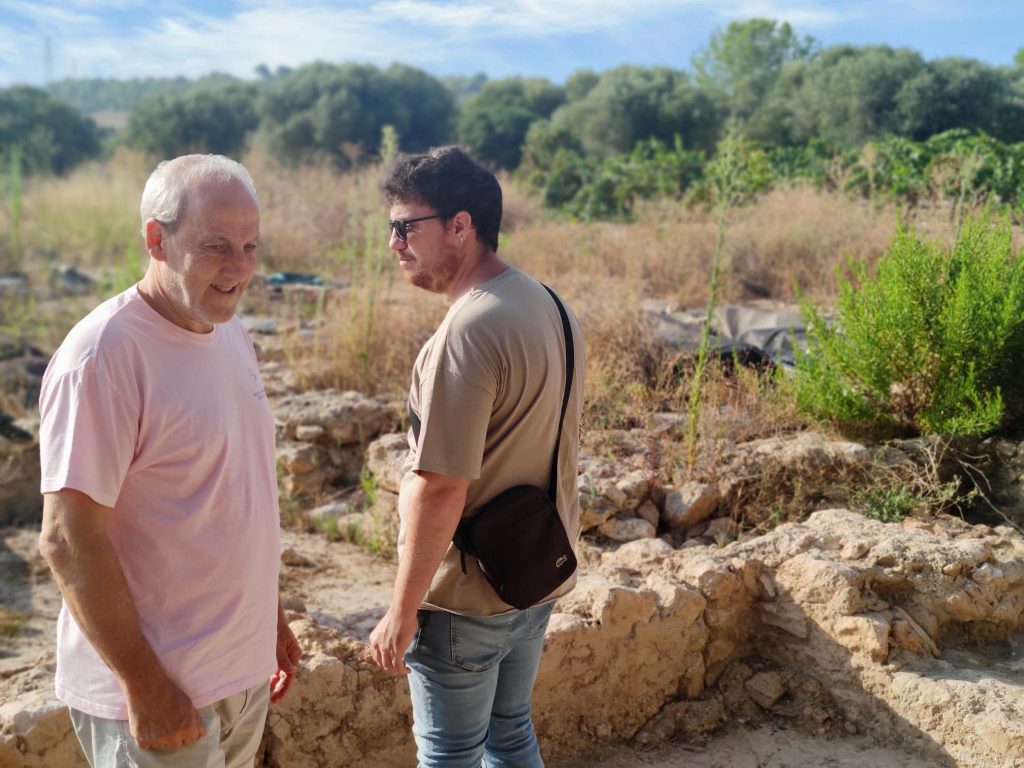
Funding:
Generalitat de Catalunya.
With the support of:
University Rovira i Virgili, City Council of Constantí.
This intervention is part of the project Estudi i difusió de la vil·la romana del Mas dels Frares (Constantí, Tarragonès), funded by a four-year project from the Department of Culture of the Generalitat de Catalunya (CLT009/18/00100).
